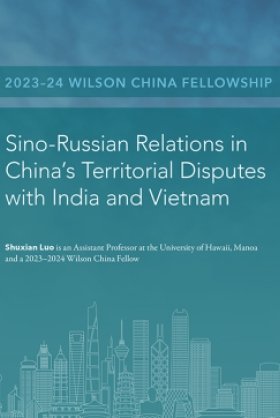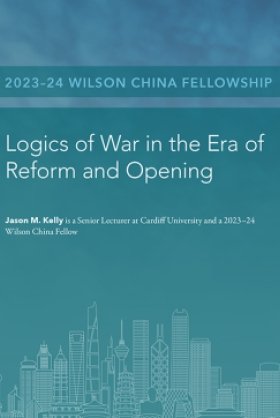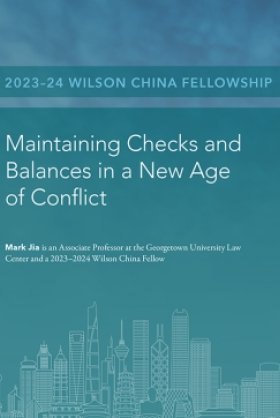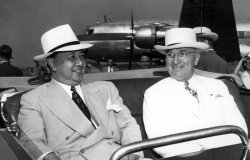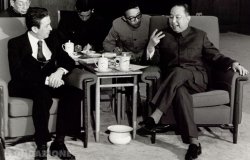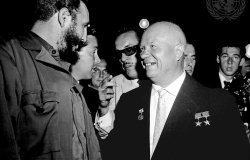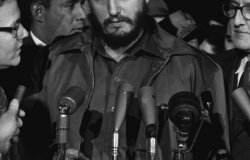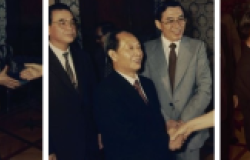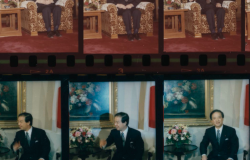NPIHP Announces Spring 2014 Nuclear History Boot Camp Participants
The Nuclear Proliferation International History Project is pleased to announce the participants of the 2014 Nuclear Boot Camp in Allumiere, Italy, 13 May - 23 May 2014.
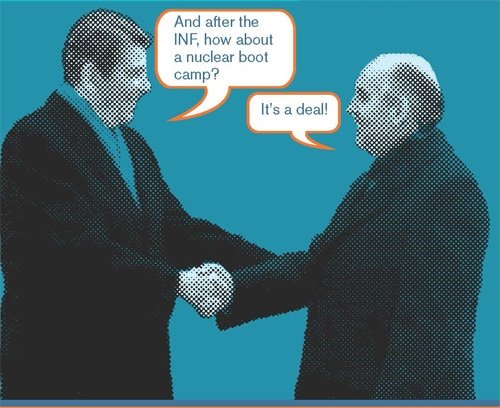
Spring 2014 Nuclear Boot Camp Student Biographies
 Dauren Aben is a senior research fellow at the Kazakhstan Institute for Strategic Studies under the President of the Republic of Kazakhstan. He holds a Master’s in International Relations from Kainar University (Almaty, Kazakhstan), and a Master’s in International Policy Studies and certificates in nonproliferation studies, conflict resolution, and commercial diplomacy from the California-based Monterey Institute of International Studies. He is finalizing his PhD dissertation on Kazakhstan’s nuclear nonproliferation policy at the Al-Farabi Kazakh National University. Previously he worked as an executive director of the Almaty office of the Monterey Institute’s James Martin Center for Nonproliferation Studies. In addition to nonproliferation, his research interests cover various aspects of regional security in Central Asia.
Dauren Aben is a senior research fellow at the Kazakhstan Institute for Strategic Studies under the President of the Republic of Kazakhstan. He holds a Master’s in International Relations from Kainar University (Almaty, Kazakhstan), and a Master’s in International Policy Studies and certificates in nonproliferation studies, conflict resolution, and commercial diplomacy from the California-based Monterey Institute of International Studies. He is finalizing his PhD dissertation on Kazakhstan’s nuclear nonproliferation policy at the Al-Farabi Kazakh National University. Previously he worked as an executive director of the Almaty office of the Monterey Institute’s James Martin Center for Nonproliferation Studies. In addition to nonproliferation, his research interests cover various aspects of regional security in Central Asia.
 Rabia Akhtar is a Ph.D Candidate in Security Studies Department at Kansas State University, USA. She is currently working on her dissertation titled “Legislative History of U.S. Non-Proliferation Policy towards Pakistan.” Her research is a foreign policy analysis of executive-legislative interactions in U.S. foreign policymaking and related issues in Congressional oversight of U.S. foreign policy towards Pakistan during the course of its nuclear weapons development. She was awarded Fulbright Scholarship in 2010 for doctoral studies. Prior to pursuing her doctorate, she was serving as Assistant Professor and Incharge of the Department of Defense and Diplomatic Studies at Fatima Jinnah Women's University, Rawalpindi Pakistan. She was the recipient of Mehboob ul Haq Award 2013 for a monograph on “Nuclear Learning in South Asia” by the Regional Center of Strategic Studies (RCSS), Colombo, Sri Lanka. She is a regular blog contributor for 'Generation Why', a Stimson Center project and will be joining Stimson Center as a Visiting Research Fellow for the Generation Why project in July 2014 http://southasianvoices.org/.
Rabia Akhtar is a Ph.D Candidate in Security Studies Department at Kansas State University, USA. She is currently working on her dissertation titled “Legislative History of U.S. Non-Proliferation Policy towards Pakistan.” Her research is a foreign policy analysis of executive-legislative interactions in U.S. foreign policymaking and related issues in Congressional oversight of U.S. foreign policy towards Pakistan during the course of its nuclear weapons development. She was awarded Fulbright Scholarship in 2010 for doctoral studies. Prior to pursuing her doctorate, she was serving as Assistant Professor and Incharge of the Department of Defense and Diplomatic Studies at Fatima Jinnah Women's University, Rawalpindi Pakistan. She was the recipient of Mehboob ul Haq Award 2013 for a monograph on “Nuclear Learning in South Asia” by the Regional Center of Strategic Studies (RCSS), Colombo, Sri Lanka. She is a regular blog contributor for 'Generation Why', a Stimson Center project and will be joining Stimson Center as a Visiting Research Fellow for the Generation Why project in July 2014 http://southasianvoices.org/.
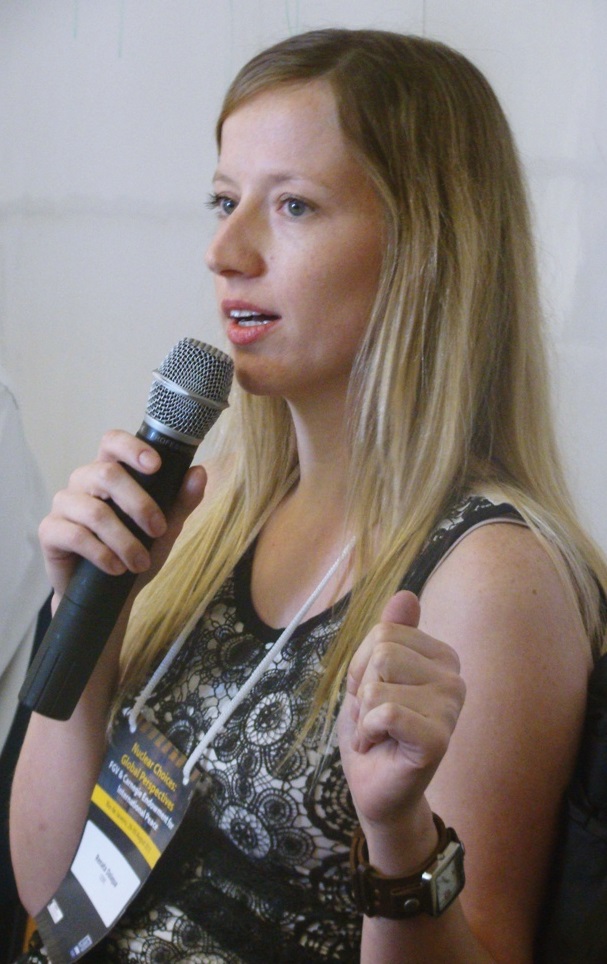 Renata Hessmann Dalaqua holds a BA in Political Science from the State University of Campinas and a MA in International Politics and Security from the University College London. Currently, Renata is a PhD candidate in History and Politics at the Center for Research and Documentation of Contemporary History of Brazil (CPDOC/FGV) and the Project Coordinator of the Brazilian Center for International Relations (CEBRI). Her areas of research interest include nuclear disarmament movement, opposition to nuclear energy and governance for uranium mining.
Renata Hessmann Dalaqua holds a BA in Political Science from the State University of Campinas and a MA in International Politics and Security from the University College London. Currently, Renata is a PhD candidate in History and Politics at the Center for Research and Documentation of Contemporary History of Brazil (CPDOC/FGV) and the Project Coordinator of the Brazilian Center for International Relations (CEBRI). Her areas of research interest include nuclear disarmament movement, opposition to nuclear energy and governance for uranium mining.
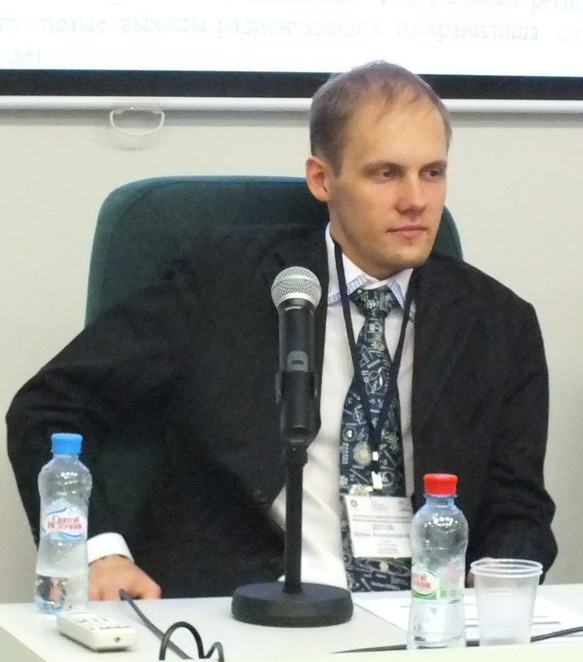 Artem Dogov started his academic career in 2008 as a laboratory assistant in the Obninsk Institute for Nuclear Power Engineering.
Artem Dogov started his academic career in 2008 as a laboratory assistant in the Obninsk Institute for Nuclear Power Engineering.
Currently, he is a PhD student. He is doing a PhD’s degree at the Obninsk Institute for Nuclear Power Engineering which is now part of the MEPhI National Nuclear Research University. His major is Design, Operation and Decommissioning of Nuclear Power Plants. Two years ago he finished a Master’s degree in Nuclear Physics. The subject of his Master’s graduation project was “Problems of improving the recycling process of spent nuclear fuel.” For several years in the university where he was working with his active participation the software tools and methods for assessing the risks of nuclear proliferation have been developed and this activity is undergoing in the framework of a couple of project realizing this days. He has an advanced degree in a technical field (nuclear engineering) and he has working on proliferation issues.
 Suzanne Doyle is a Politics PhD Candidate at the University of East Anglia. Her research critically examines the rationale behind the Carter and Reagan administrations’ decisions to supply the United Kingdom with Trident missiles. This research reveals the complex links between Britain's request and the issues faced by US policymakers. Importantly this illustrates that the response reflected hitherto underestimated political and economic priorities, as much as oft-cited strategic factors. Suzanne's wider research interests include Nuclear Politics, American Foreign Policy and Critical Security studies. Alongside this, Suzanne teaches Security Studies, International Relations Theory, and Research Methods. She also helps to run public lectures in Politics. She completed her MA in Research Methods and International Relations at Durham University, and holds an honours degree in Modern History and International Relations from the University of St Andrews.
Suzanne Doyle is a Politics PhD Candidate at the University of East Anglia. Her research critically examines the rationale behind the Carter and Reagan administrations’ decisions to supply the United Kingdom with Trident missiles. This research reveals the complex links between Britain's request and the issues faced by US policymakers. Importantly this illustrates that the response reflected hitherto underestimated political and economic priorities, as much as oft-cited strategic factors. Suzanne's wider research interests include Nuclear Politics, American Foreign Policy and Critical Security studies. Alongside this, Suzanne teaches Security Studies, International Relations Theory, and Research Methods. She also helps to run public lectures in Politics. She completed her MA in Research Methods and International Relations at Durham University, and holds an honours degree in Modern History and International Relations from the University of St Andrews.
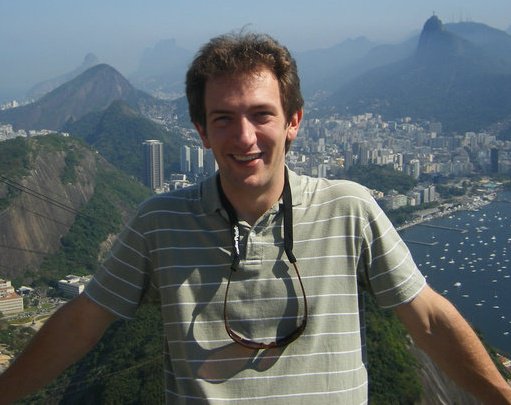 Christopher Dunlap is a fifth-year Ph.D. Candidate in Latin American History at the University of Chicago, IL, USA. His dissertation concerns the formation, maintenance and changes within national and transnational communities of nuclear scientists in Brazil and Argentina during the Cold War era. More broadly, he is interested in transnational and international scientific exchange, the movements by and communications among intellectual exiles and other persons persecuted by the state, and the geopolitics of Latin American nations vis-a-vis the United States and European powers in the twentieth century.
Christopher Dunlap is a fifth-year Ph.D. Candidate in Latin American History at the University of Chicago, IL, USA. His dissertation concerns the formation, maintenance and changes within national and transnational communities of nuclear scientists in Brazil and Argentina during the Cold War era. More broadly, he is interested in transnational and international scientific exchange, the movements by and communications among intellectual exiles and other persons persecuted by the state, and the geopolitics of Latin American nations vis-a-vis the United States and European powers in the twentieth century.
 Matthew Fay is a PhD student in the history department at Temple University. He has a bachelor's degree in political science from Saint Xavier University and master's degree in international relations from American Military University. He is interested in American foreign policy, grand strategy, nuclear strategy, nuclear proliferation and intelligence. He recently co-authored an article on nuclear weapons for the American Historical Review and an analysis of American nuclear strategy for the Cato Institute. His dissertation will focus on atomic intelligence in the aftermath of World War II.
Matthew Fay is a PhD student in the history department at Temple University. He has a bachelor's degree in political science from Saint Xavier University and master's degree in international relations from American Military University. He is interested in American foreign policy, grand strategy, nuclear strategy, nuclear proliferation and intelligence. He recently co-authored an article on nuclear weapons for the American Historical Review and an analysis of American nuclear strategy for the Cato Institute. His dissertation will focus on atomic intelligence in the aftermath of World War II.
 Stephanie Freeman is a Ph.D. candidate in history at the University of Virginia. Her dissertation examines the influence of grassroots and government-level nuclear abolitionists on international politics in the last decade of the Cold War. She earned an M.A. in history from the University of Virginia. Her M.A. thesis reexamined the Carter administration's role in the formulation of the NATO dual-track decision, as well as U.S. calculations about the dual-track decision's likely impact on superpower relations. Stephanie also holds a B.A. in history and political science from Vanderbilt University. Her research interests include the international history of nuclear disarmament, Cold War history, and U.S. foreign relations.
Stephanie Freeman is a Ph.D. candidate in history at the University of Virginia. Her dissertation examines the influence of grassroots and government-level nuclear abolitionists on international politics in the last decade of the Cold War. She earned an M.A. in history from the University of Virginia. Her M.A. thesis reexamined the Carter administration's role in the formulation of the NATO dual-track decision, as well as U.S. calculations about the dual-track decision's likely impact on superpower relations. Stephanie also holds a B.A. in history and political science from Vanderbilt University. Her research interests include the international history of nuclear disarmament, Cold War history, and U.S. foreign relations.
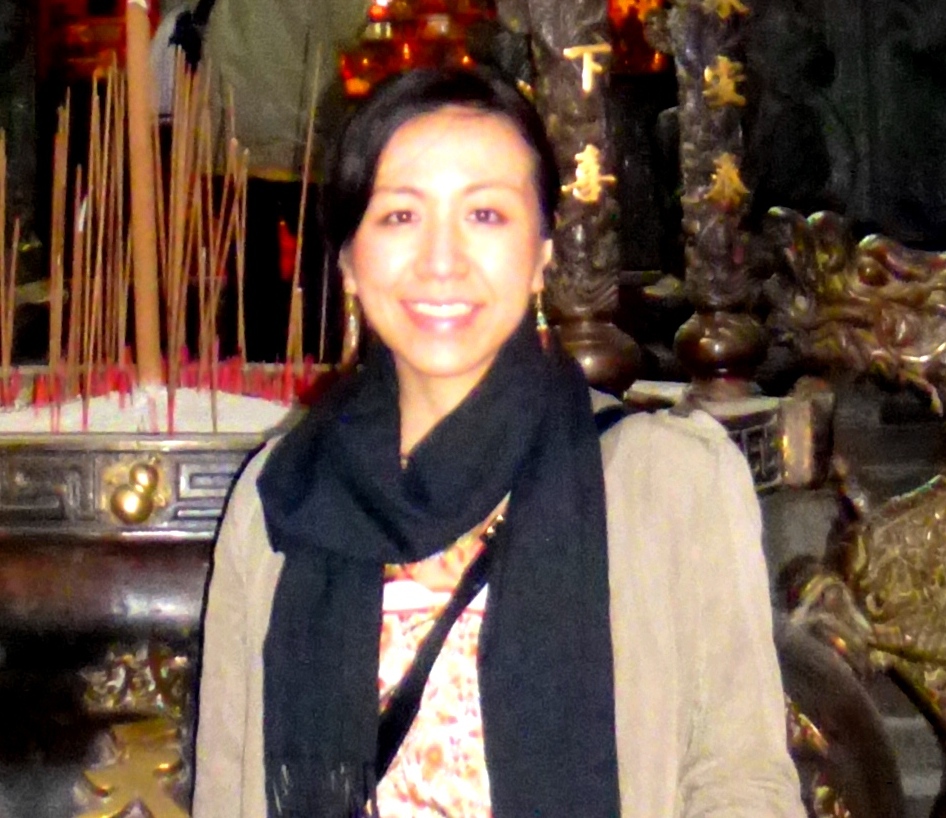 Fumi Inoue is currently a first-year Ph.D. student studying the history of Japan-U.S. relations and the history of modern Japan at Boston College, U.S.A. She has been working with atomic-bomb survivors organizations since she was in college; she studied at Waseda University in Tokyo between 2006 and 2010. Her interest in the international history of nuclear weapons comes from having been raised in Nagasaki. As a graduate student studying Japan-U.S. relations in the context of military and security issues, she is interested in the history of U.S. entry with nuclear weapons into Japan.
Fumi Inoue is currently a first-year Ph.D. student studying the history of Japan-U.S. relations and the history of modern Japan at Boston College, U.S.A. She has been working with atomic-bomb survivors organizations since she was in college; she studied at Waseda University in Tokyo between 2006 and 2010. Her interest in the international history of nuclear weapons comes from having been raised in Nagasaki. As a graduate student studying Japan-U.S. relations in the context of military and security issues, she is interested in the history of U.S. entry with nuclear weapons into Japan.
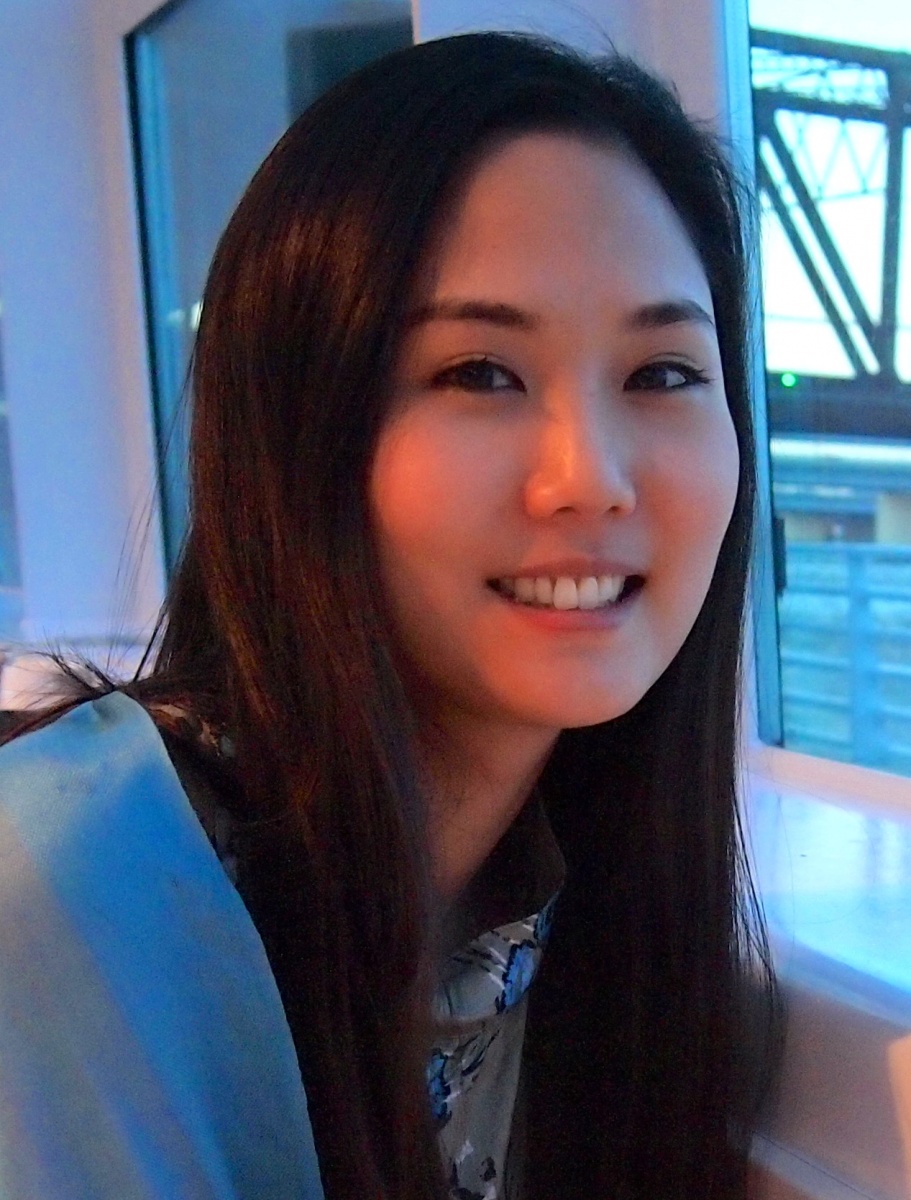 Jooeun Kim is a doctoral student in government at Georgetown University, where she concentrates on international relations. Jooeun’s research is primarily focused on nuclear deterrence and alliance management. Specifically, her dissertation examines the variation in junior allies' decision to proliferate under the nuclear umbrella. Jooeun holds a BA in political science from Waseda University in Japan, an MA in international affairs from George Washington University, and an MA in government from Georgetown University.
Jooeun Kim is a doctoral student in government at Georgetown University, where she concentrates on international relations. Jooeun’s research is primarily focused on nuclear deterrence and alliance management. Specifically, her dissertation examines the variation in junior allies' decision to proliferate under the nuclear umbrella. Jooeun holds a BA in political science from Waseda University in Japan, an MA in international affairs from George Washington University, and an MA in government from Georgetown University.
 Sara Moller is a doctoral candidate in the Department of Political Science at Columbia University and a Predoctoral Fellow at the Institute for Security and Conflict Studies at George Washington University. Previously, she was a Research Fellow at Georgetown University’s Mortara Center for International Studies. Prior to undertaking her Ph.D. studies, she worked as a Research Associate for Middle Eastern Studies at the Council on Foreign Relations. She received an M.A. from Georgetown University’s Security Studies Program (SSP) and a B.A. in Political Studies from Queen’s University in Kingston, Ontario. Her dissertation explores the design and effectiveness of alliances and coalitions in wartime.
Sara Moller is a doctoral candidate in the Department of Political Science at Columbia University and a Predoctoral Fellow at the Institute for Security and Conflict Studies at George Washington University. Previously, she was a Research Fellow at Georgetown University’s Mortara Center for International Studies. Prior to undertaking her Ph.D. studies, she worked as a Research Associate for Middle Eastern Studies at the Council on Foreign Relations. She received an M.A. from Georgetown University’s Security Studies Program (SSP) and a B.A. in Political Studies from Queen’s University in Kingston, Ontario. Her dissertation explores the design and effectiveness of alliances and coalitions in wartime.
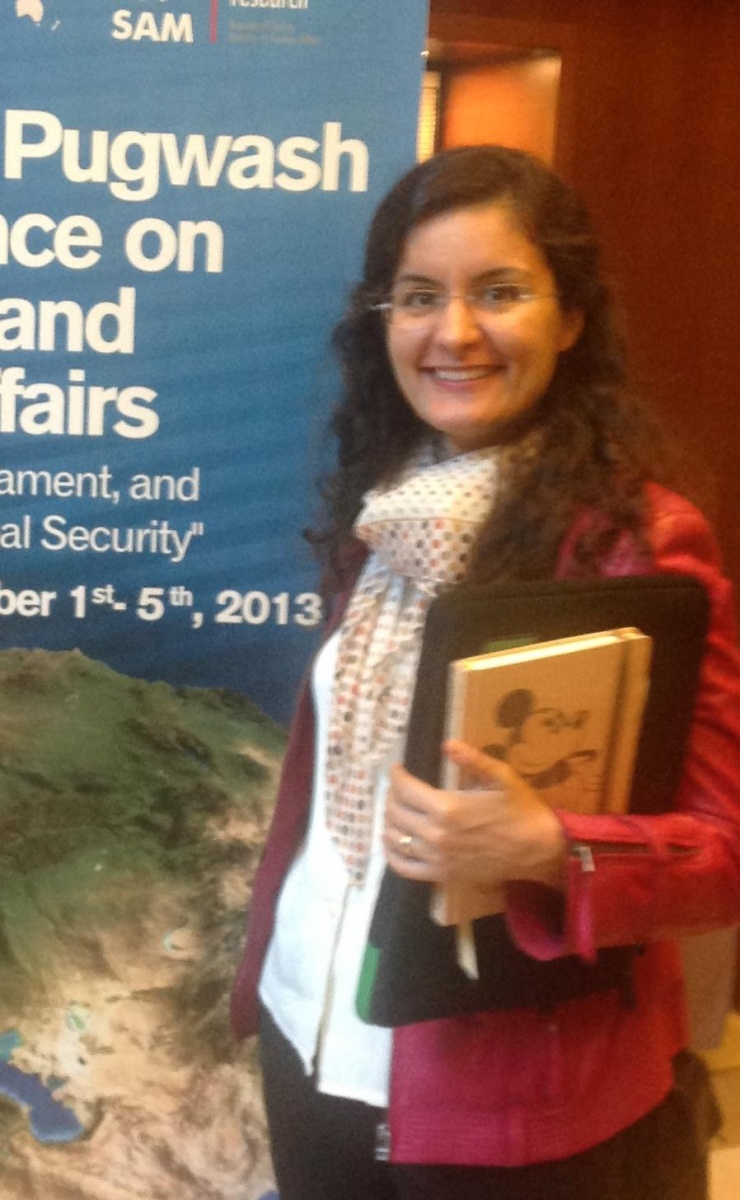 Cigdem Pekar is a PhD candidate and Research Assistant in the department of International Relations at Canakkale Onsekiz Mart University, Turkey. She holds a B. A. degree in International Relations and a M.A degree in European Studies from University of Exeter, UK. She is a member of International Student/Young Pugwash Group. Her study focuses on the Global Non-Proliferation Regime with particular emphasis on the peaceful use of nuclear technology. Her main research interests include nuclear proliferation, nuclear governance and nuclear energy. She enjoys travelling, visiting museums and playing volleyball.
Cigdem Pekar is a PhD candidate and Research Assistant in the department of International Relations at Canakkale Onsekiz Mart University, Turkey. She holds a B. A. degree in International Relations and a M.A degree in European Studies from University of Exeter, UK. She is a member of International Student/Young Pugwash Group. Her study focuses on the Global Non-Proliferation Regime with particular emphasis on the peaceful use of nuclear technology. Her main research interests include nuclear proliferation, nuclear governance and nuclear energy. She enjoys travelling, visiting museums and playing volleyball.
 Kanica Rakhra is a PhD candidate at the Center for International Politics, Organization and Disarmament, Jawaharlal Nehru University, New Delhi. She was previously working for the Center for Air Power Studies where she wrote articles for their journal, Defense and Diplomacy and worked on the editorial team for the fortnightly Nuclear Newsletter. She has presented papers at The Center for Strategic and International Studies (CSIS), Washington, at Jawaharlal Nehru University, as well as other Universities in India. She has also attended summer programs on Strategic Studies and Political Psychology. Having a Bachelors in Psychology (Hons.) and a Masters in Conflict Analysis and Peace Building, she aims to understand nuclear politics and nuclear decision making from the prism of Political Psychology, particularly the role of emotions. Her research interests are: international relations, nuclear politics, political psychology, South Asia and the changing global order.
Kanica Rakhra is a PhD candidate at the Center for International Politics, Organization and Disarmament, Jawaharlal Nehru University, New Delhi. She was previously working for the Center for Air Power Studies where she wrote articles for their journal, Defense and Diplomacy and worked on the editorial team for the fortnightly Nuclear Newsletter. She has presented papers at The Center for Strategic and International Studies (CSIS), Washington, at Jawaharlal Nehru University, as well as other Universities in India. She has also attended summer programs on Strategic Studies and Political Psychology. Having a Bachelors in Psychology (Hons.) and a Masters in Conflict Analysis and Peace Building, she aims to understand nuclear politics and nuclear decision making from the prism of Political Psychology, particularly the role of emotions. Her research interests are: international relations, nuclear politics, political psychology, South Asia and the changing global order.
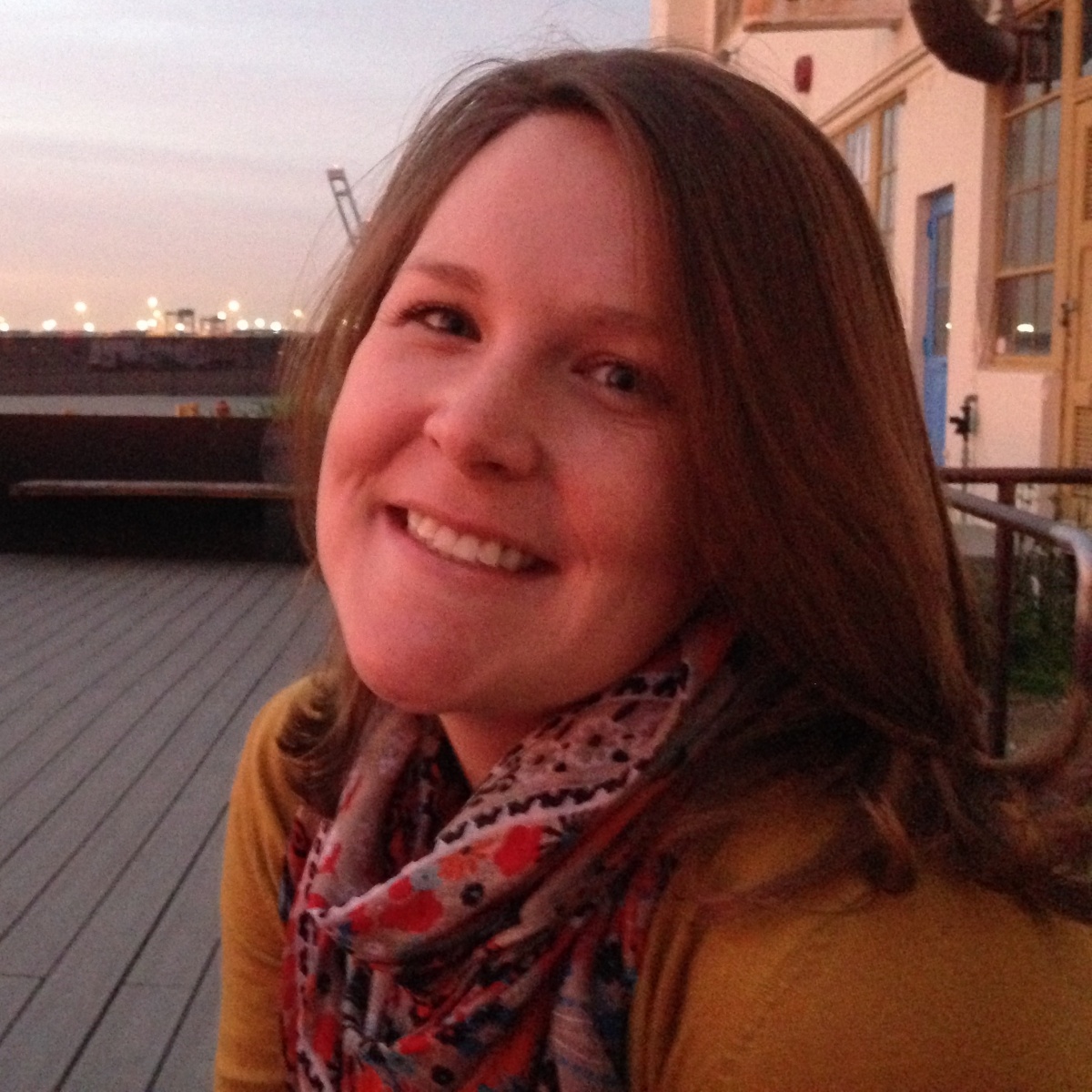 Sarah Robey is a doctoral candidate in American history at Temple University in Philadelphia, PA. She received her B.A. from Northeastern University in Boston, MA in 2008. Her dissertation, "The Atomic American: Citizenship in a Nuclear State, 1945-1962," explores how nuclear weapons changed American ideas about national community, cultural citizenship, and civic participation in the early years of the Cold War. Sarah has spent the last nine months at the Smithsonian Institution in Washington, DC, first serving as a Predoctoral Fellow at the National Museum of American History and now as a Research Associate at the National Air and Space Museum.
Sarah Robey is a doctoral candidate in American history at Temple University in Philadelphia, PA. She received her B.A. from Northeastern University in Boston, MA in 2008. Her dissertation, "The Atomic American: Citizenship in a Nuclear State, 1945-1962," explores how nuclear weapons changed American ideas about national community, cultural citizenship, and civic participation in the early years of the Cold War. Sarah has spent the last nine months at the Smithsonian Institution in Washington, DC, first serving as a Predoctoral Fellow at the National Museum of American History and now as a Research Associate at the National Air and Space Museum.
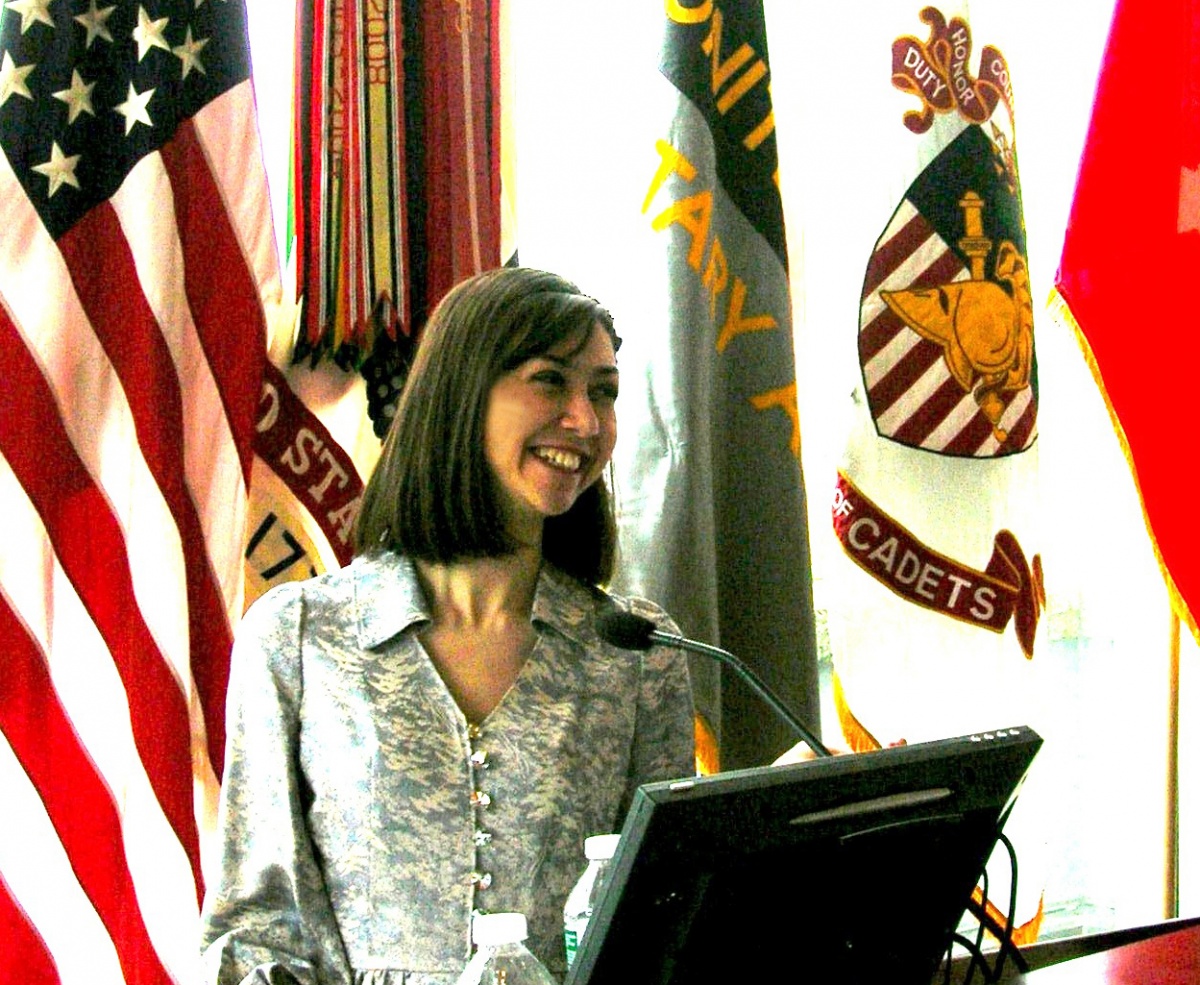 Sayuri Romei holds a BA in English Language and Literature from the University of Sorbonne Nouvelle Paris III and a BA in International Relations from the University of La Sapienza, Rome. She is currently working on her Master’s thesis in International Relations (March 2014, University of Roma Tre) which is on the role of U.S. extended nuclear deterrence in Japan from the end of the Cold War. Her research interests include nuclear politics, nonproliferation, U.S.-Japan relations, the East Asian strategic environment, diplomatic relations between East Asian states, and nuclear energy. In her free time, Sayuri enjoys every form of art as well as sports, and learning about other cultures.
Sayuri Romei holds a BA in English Language and Literature from the University of Sorbonne Nouvelle Paris III and a BA in International Relations from the University of La Sapienza, Rome. She is currently working on her Master’s thesis in International Relations (March 2014, University of Roma Tre) which is on the role of U.S. extended nuclear deterrence in Japan from the end of the Cold War. Her research interests include nuclear politics, nonproliferation, U.S.-Japan relations, the East Asian strategic environment, diplomatic relations between East Asian states, and nuclear energy. In her free time, Sayuri enjoys every form of art as well as sports, and learning about other cultures.
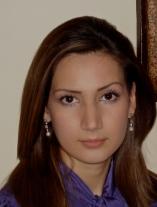 Mahsa Rouhi is a research associate at MIT, Center for International Studies where she has worked on various research projects since 2009. She is a PhD Candidate at University of Cambridge, UK. She received her B.A. in Economics from Shahid Beheshty University in Tehran, Iran and her Masters Degree in Political Theory from University of Sheffield, UK. She was a Nuclear Security fellow and a research associate at the Managing the Atom program at Belfer Center, Harvard University. Her teaching and research interest focuses on International Relations, International Security, Disarmament and Nuclear Security, Conflict Resolution, Religion and Politics and Foreign Policy with special focus on the Middle East region.
Mahsa Rouhi is a research associate at MIT, Center for International Studies where she has worked on various research projects since 2009. She is a PhD Candidate at University of Cambridge, UK. She received her B.A. in Economics from Shahid Beheshty University in Tehran, Iran and her Masters Degree in Political Theory from University of Sheffield, UK. She was a Nuclear Security fellow and a research associate at the Managing the Atom program at Belfer Center, Harvard University. Her teaching and research interest focuses on International Relations, International Security, Disarmament and Nuclear Security, Conflict Resolution, Religion and Politics and Foreign Policy with special focus on the Middle East region.
Related Program

Nuclear Proliferation International History Project
The Nuclear Proliferation International History Project is a global network of individuals and institutions engaged in the study of international nuclear history through archival documents, oral history interviews, and other empirical sources. At the Wilson Center, it is part of the Wilson Center's History and Public Policy Program. Read more

